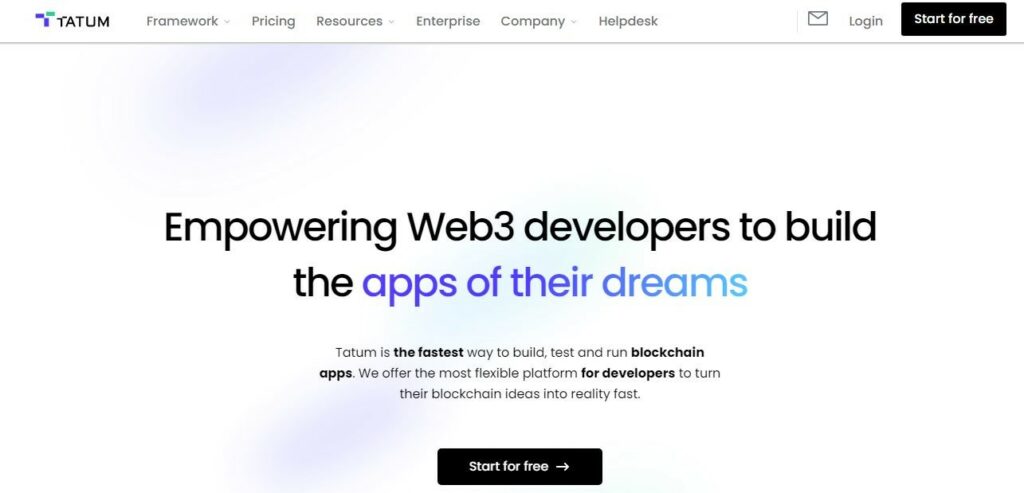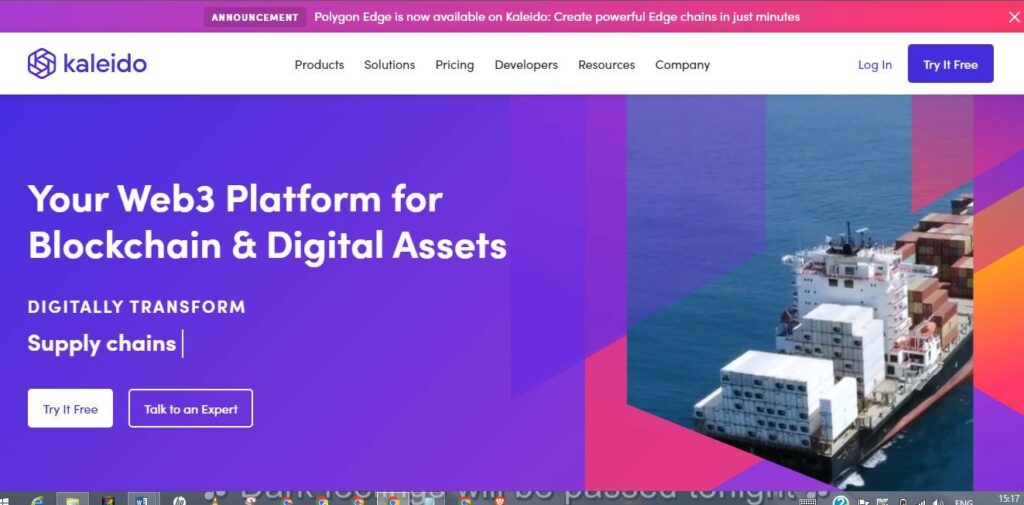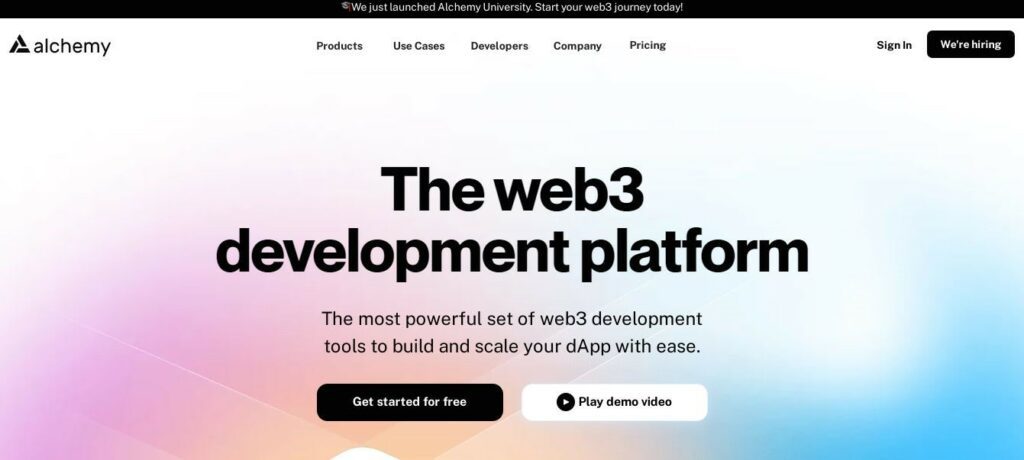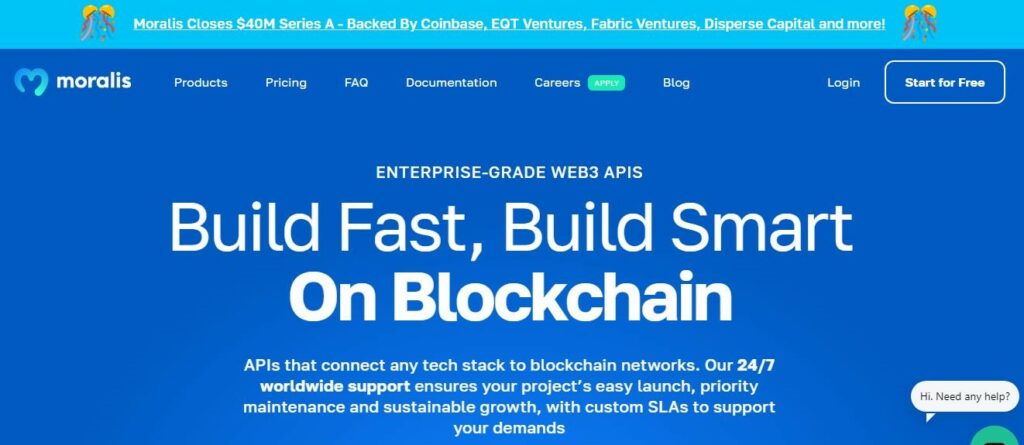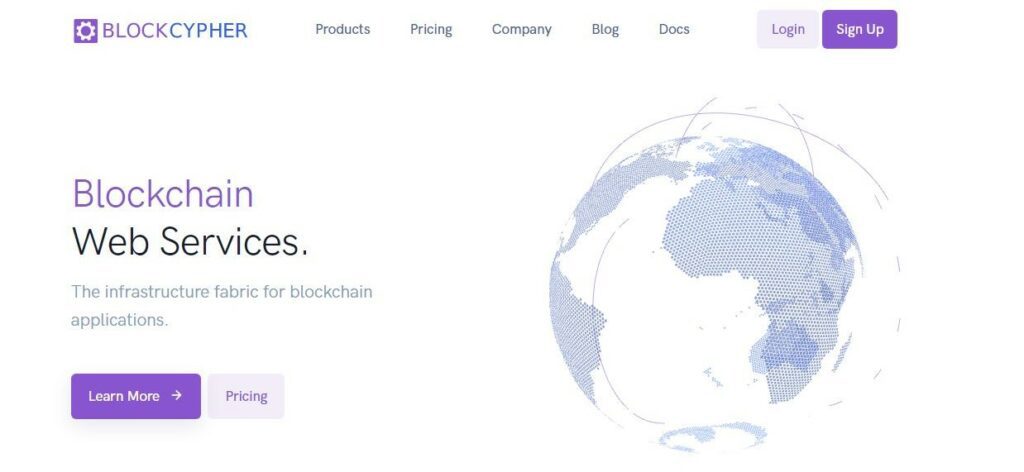Web3 space is rapidly growing. Businesses are going for blockchain-based applications.
Table of Contents
New decentralized projects and applications are dropping every day.
Therefore it is difficult for a small business to build blockchain-based applications and projects.
Individual developers learning to build on blockchain technology need sufficient tools and infrastructure for their projects.
There are many blockchain infrastructure providers available in the market. One of the most popular ones is QuickNode.
What is QuickNode?
QuickNode is a blockchain infrastructure and API platform that lets you build a blockchain-decentralized application for your business or execute any web3 idea you have.
QuickNode is one of the best infrastructure platforms when it comes to scalability as it has an automatic scaling solution. You pay for what you use.
It has partnered with multiple platforms to access tools and networks that will help you to build your blockchain application.
QuickNode has a pool of nodes that you can use according to your requirements. You can decrease or increase the number of nodes used for your project as per needs.
QuickNode provides access to more than 15 chains and their tokens. QuickNode is a worldwide network of nodes and has spread to more than 10 regions.
It comes with robust solutions and features like NFT API, Token API, and analytics.
However, there are other best platforms available that provide the same services and solutions.
Here are some of the best alternatives to QuickNode –
6 QuickNode Alternatives
Chainstack
Chainstack’s software and APIs are used by startups and large enterprises to build, run, and scale blockchain applications.
The best thing about Chainstack is that you can pay with Crypto for your subscriptions and node usage. Chainstack provides support for more than 10 chains including Fuse, Tezos, and Aurora.
It also provides support for app chains such as Avalanche subnets, Polygon Supernets, StarkEX apps, etc.
Chainstack’s solutions include marketplace, Hosting, IPFS APIs, Web3 builders, and Software studios.
The node platform is globally distributed and offers a variety of deployment options.Ftoken
When you use Chainstack, you are always in control of cost control and spending optimization while developing scalable applications
Tatum
It’s an one of the most used Web3 developer stacks which includes Tatum JS, Tatum KMS, RPC Nodes REST API, Tatum CLI, etc.
Tatum provides fast scaling solutions with one simple SDK including all blockchains. Developers can just code once and deploy it to any blockchain supported by the platform.
Tatum’s REST API provides limitless flexibility for securely building and running your DeFi app.
Its toolkit includes useful features like notifications and data analysis among others.
The best thing about Tatum is that developers can start building for free. In this way, Tatum is the most affordable blockchain infrastructure platform.
For Enterprises, it provides a combined approach of SLAs, unlimited usage, and infinite scalability.
Tatum also has an NFT plugin that helps to min and sell NFT directly from WordPress or WooCommerce sites.
Kaleido
Kaleido is one of the most reputable and trusted platforms to build blockchain applications. It helps with solutions like smart contracts, block explorer, token explorer, REST API Gateway, Network Governance, etc.
Kaleido helps to Create, run, and scale blockchain nodes quickly and easily using the tools and protocols of your choice. It provides blockchain solutions like SuperNodes, Hyperledger Firefly, chains and app chains, Polygon Edge, etc.
It helps to launch your blockchain network in the cloud and location of your choice with powerful insights and monitoring tools. Kaleido brings numerous advanced solutions including plug-and-play services and third-party integrations.
Alchemy
Alchemy is a developer platform that allows businesses to create scalable and dependable decentralized applications without having to manage blockchain infrastructure in-house.
Developers can start building on Alchemy for free as it has The most powerful set of web3 development tools for easily building and scaling decentralized apps.
Alchemy provides solutions like NFT API, SuperNodes, app notifications, enhanced APIs, tools for prototyping and debugging, dashboard alerts, etc.
Alchemy works for multiple blockchain networks such as Ethereum, Polygon, Solana, Optimism, flow, and crypto.org.
Currently, it outperforms all competing solutions in terms of speed, dependability, and scalability, and it integrates incredibly quickly.
Moralis
Moralis provides support for multiple chains such as Ethereum, Binance, Polygon, Solana, Avalanche, Fantom, Cronos, Arbitrum, etc.
Developers can monitor addresses and smart contracts on the Moralis dashboard and can receive Webhooks if something occurs on-chain.
Its stream APIs help to ingest real-time blockchain data while building applications.
Along with this developers can leverage AUTH API to authenticate users on their blockchain application.
It helps to consolidate the addresses of users across different networks and wallets into a single user profile.
Moralis provides access to Tokens, NFT, and transaction data across blockchain networks. Other than these Moralis provides solutions like NFT API, Solana API, and EVM API.
BlockCypher
Its’s one of the most trusted Web3 infrastructure service providers. BlockCypher provides solutions like APIs, Mining pool,and Block Explorer.
It is most commonly known for its block explorer which helps to explore any blockchain network.
Startups and large enterprises leverage BlockCypher APIs to add blockchain to their business and build applications.
It has multiple data centers for low latency and redundancy along with a robust data store and full blockchain nodes.





